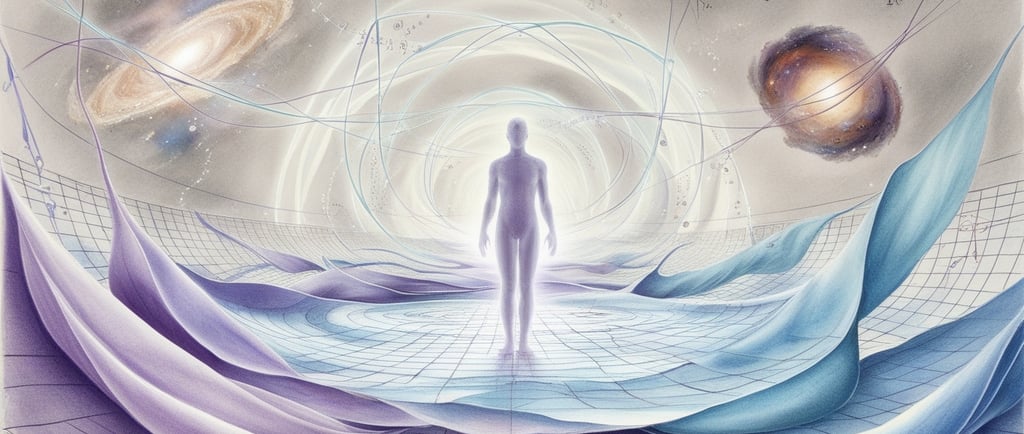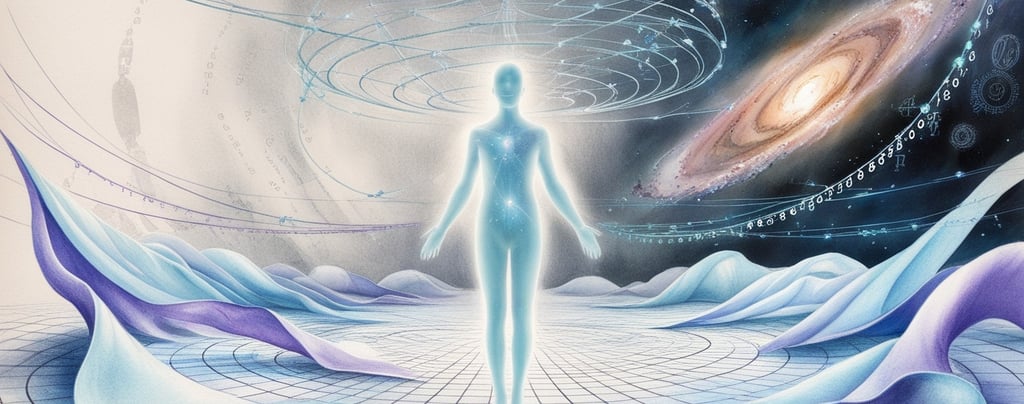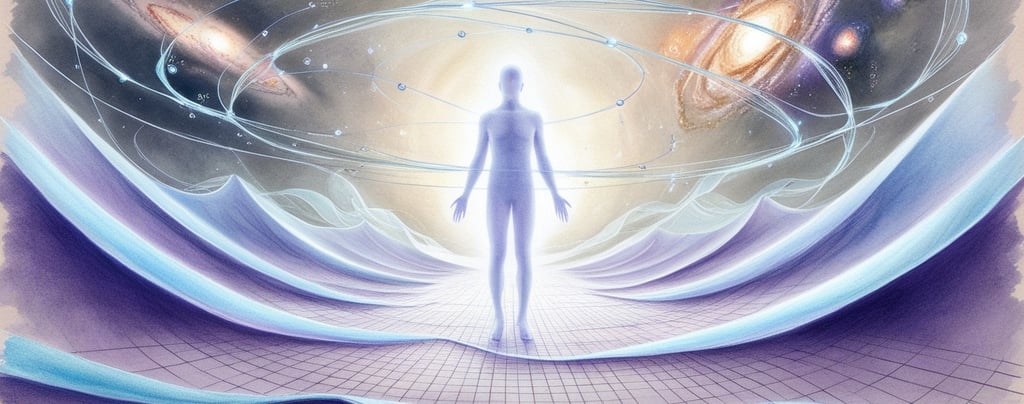Emergent Gravity: A New Theory of the Universe
Could gravity be a side effect of hidden rules in the universe? Explore groundbreaking theories of emergent gravity and black holes, and discover how this revolutionary idea could change science forever.
Black Heart
4/15/20254 min read


What If Gravity Is Just an Emergent Illusion?
Introduction
Sometimes, late at night, I start questioning the very basics. We grow up learning that gravity is the invisible glue holding the universe together, the force that pulls apples to the ground, keeps planets in orbit, and makes black holes terrifying. But what if all of that is just… an illusion?
What if gravity isn’t a fundamental force at all, but something that emerges from deeper, hidden rules of reality?
This idea sounds wild, but physicists have actually been debating it. So let’s explore what life, science, and the universe would look like if gravity were not “real” in the way we think, but just a side effect of something else.
What Do We Mean by "Emergent Illusion"?
Think about temperature. No single molecule has “temperature.” Instead, temperature is a collective effect of countless molecules vibrating together. In the same way, gravity might be a byproduct of something deeper, not a force in itself, but a side effect of information, quantum entanglement, or even the shape of space-time.
That’s what physicists mean by “emergent.” Gravity isn’t fake; it’s real enough to us, but it’s not a fundamental building block of nature.
If Gravity Isn’t Real, What Holds Us Down?
Here’s the strange part: even if gravity is emergent, apples would still fall, and we’d still stay glued to Earth. The experience of gravity wouldn’t change. But the explanation behind it would.
Instead of a fundamental pull, it could be the result of information encoded in the universe.
Some theories say gravity might emerge from entropic forces, basically, the universe trying to maximize disorder.
Others argue it comes from quantum entanglement, the invisible web connecting particles across space.
If that’s true, gravity is like the shadow of something bigger and stranger.
Could We Break Gravity If It’s Just Emergent?
Here’s where it gets juicy. If gravity is fundamental, good luck breaking it. But if it’s emergent, like a hologram, maybe we can hack it.
Gravity Tech: Imagine devices that rewrite the rules of entanglement, letting us turn gravity off in small zones. Floating cities? Yes, please.
Gravity Shields: If gravity is an illusion, maybe it’s possible to shield against it, like an anti-gravity umbrella.
Space Travel Revolution: Current rockets fight gravity with brute force. But what if you could just “switch it off”? Suddenly, interstellar travel isn’t just sci-fi.
If we ever discover how gravity emerges, that knowledge could unlock one of humanity’s biggest technological leaps.


Black Holes in an Emergent Gravity Universe
Black holes are the ultimate playground of gravity. If gravity is emergent, then maybe black holes aren’t bottomless pits but information processors.
Some physicists already suggest black holes store quantum information on their surfaces (the “holographic principle”). If so, black holes might not just swallow matter; they could be the cosmic libraries of everything that ever existed.
In this view, black holes aren’t just scary; they’re clues that gravity is hiding a deeper code.
Would the Universe Still Expand?
The universe is expanding faster and faster, driven by dark energy. But here’s the kicker: if gravity is emergent, maybe dark energy is too.
Some models suggest the expansion is just a large-scale side effect of how space-time encodes information. In other words, the “push” of dark energy might not be a force; it could be the universe rearranging itself to balance its own math.
That would mean our entire cosmic history, Big Bang, galaxies, stars, emerged not from forces pulling and pushing, but from information rules we haven’t fully cracked.
Everyday Life in a World of Illusory Gravity
If tomorrow scientists prove gravity is emergent, what changes for us?
Your feet would still stay on the ground.
Planes wouldn’t suddenly fall from the sky.
But philosophically? Everything changes.
It would mean reality is more like a simulation than a machine. It would mean that what we call “forces” are just appearances, not the true gears underneath. That shifts science into a new era, less about forces, more about information and patterns.


Pros of Gravity as an Emergent Illusion
Could unify physics: quantum mechanics and relativity might finally make sense together.
Might lead to practical breakthroughs: anti-gravity tech, new propulsion systems.
Gives us a fresh framework to understand black holes, dark energy, and cosmic expansion.
Shows the universe is far stranger than we thought (always fun).
Cons of Gravity as an Emergent Illusion
Breaks our comfortable model of physics; we’d need to relearn reality.
It could be impossible to test directly (lots of theories, little proof).
Raises disturbing philosophical questions: if gravity is an illusion, what else is?
Might destabilize other physics models we rely on for technology.
My Thoughts
Honestly? I love this idea. Not because I want gravity to be fake (falling would still hurt, trust me), but because it shows how much we don’t know.
If gravity turns out to be emergent, it means the universe isn’t what it seems. It’s deeper, stranger, more like a coded system than a machine. And maybe, just maybe, that opens the door to manipulating it.
I imagine a future where kids learn in school: “Gravity isn’t real. It’s just an effect. But here’s how we bend it to make spaceships hover.” And that’s the kind of future I want to live in.
🔍 FAQs
Q: Is there scientific evidence that gravity is emergent?
Yes, physicists like Erik Verlinde have proposed theories of entropic gravity, but it’s still debated.
Q: Would we still experience gravity if it’s not fundamental?
Absolutely. Emergent doesn’t mean fake, it means it comes from something deeper.
Q: Could we build anti-gravity machines if it’s emergent?
Maybe! If we discover the rules behind it, in theory, yes.
🔗 Related Articles from EdgyThoughts.com
🌐 External Resource
Curious? Read about Emergent Gravity on Wikipedia.